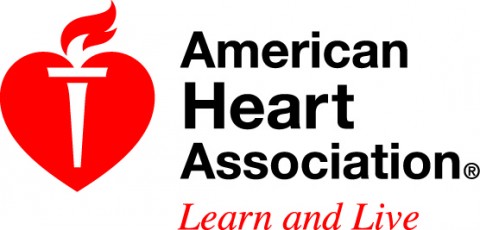Journal of the American Heart Association Report
 Dallas, TX – Even in areas with moderate-to-high levels of traffic pollution, regular physical activity reduced the risk of first and recurrent heart attack, according to new research in Journal of the American Heart Association, the Open Access Journal of the American Heart Association/American Stroke Association.
Dallas, TX – Even in areas with moderate-to-high levels of traffic pollution, regular physical activity reduced the risk of first and recurrent heart attack, according to new research in Journal of the American Heart Association, the Open Access Journal of the American Heart Association/American Stroke Association.
“While exercise is known to reduce cardiovascular disease risk; pollution can increase the risk of cardiovascular disease, including heart attacks, asthma and chronic obstructive lung disease,” said Nadine Kubesch, Ph.D., lead author and researcher at the University of Copenhagen in Denmark.

“Currently there is little data on whether poor air quality cancels out the protective benefits of physical activity in preventing heart attacks,” stated Kubesch.
Researchers in Denmark, Germany and Spain evaluated outdoor physical activity levels (sports, cycling, walking and gardening) and nitrogen dioxide (NO2 pollutant generated by traffic) exposure in 51,868 adults, age 50-65, comparing self-reported activities and lifestyle factors against heart attack. Over a 17.7-year period, there were 2,936 first heart attacks and 324 recurrent heart attacks.
To estimate average NO2 exposure, researchers used national traffic pollution monitoring data for each participants’ address and found:
- Higher levels of were associated with more heart attacks, however, the risk was lower among those who were physically active.
- Moderate cycling for four or more hours per week cut risk for recurrent heart attack by 31 percent; and there was a 58 percent reduction when all four types of physical activity (together totaling four hours per week or more) were combined, regardless of air quality.
- Those who participated in sports had a 15 percent lower rate of initial heart attacks and there was a 9 percent risk reduction associated with cycling, regardless of air quality
- Compared to participants with low residential NO2 exposure, those in higher risk areas had a 17 percent increase risk in first heart attack and 39 percent for recurrent heart attack.
In particiants who developed a heart attack (first or recurrent), the average NO2 exposure level was 18.9 microgramm per cubic meter air (?g/m3) with an overall average of 18.7 ?g/m3, which is below the current NO2 European Union exposure guideline (50 ?g/m3 over 24 hours).
“Our study shows that physical activity even during exposure to air pollution, in cities with levels similar to those in Copenhagen, can reduce the risk of heart attack,” Kubesch said. “Our research supports existing evidence that even moderate levels of regular physical activity, such as active commuting, are suffienciently intense to get these health benefits.
Co-authors are Jeanette Therming Jørgensen, M.Sc.; Barbara Hoffmann, M.D.,M.P.H.; Steffen Loft, Ph.D.; Mark J. Nieuwenhuijsen, Ph.D.; Ole Raaschou-Nielsen, Ph.D.; Marie Pedersen, Ph.D.; Ole Hertel, Ph.D.; Kim Overvad, Ph.D.; Anne Tjønneland, M.D., Ph.D.; Eva Prescott, M.D., D.M.Sc.; and Zorana J. Andersen, Ph.D.;. The authors report no disclosures.
The Novo Nordisk Foundation, Denmark, funded the study.
Additional Resources:
- View the manuscript online.
- Air Pollution and Heart Disease, Stroke
- AHA Scientific Statement: Particulate matter air pollution and CVD
- Air Pollution and CVD Fact Sheet
- How to Keep Cool During Warm Weather Workouts (Infographic)
- How to Stay Active in Warm Weather
- When is the best time of day to work out?
- Follow AHA/ASA news on Twitter @HeartNews
- For updates and new science from JAHA, follow @JAHA_AHA
About the American Heart Association
The American Heart Association is devoted to saving people from heart disease and stroke – the two leading causes of death in the world. We team with millions of volunteers to fund innovative research, fight for stronger public health policies and provide lifesaving tools and information to prevent and treat these diseases. The Dallas-based association is the nation’s oldest and largest voluntary organization dedicated to fighting heart disease and stroke.
To learn more or to get involved, call 1.800.AHA.USA1, visit heart.org or call any of our offices around the country. Follow us on Facebook and Twitter.



